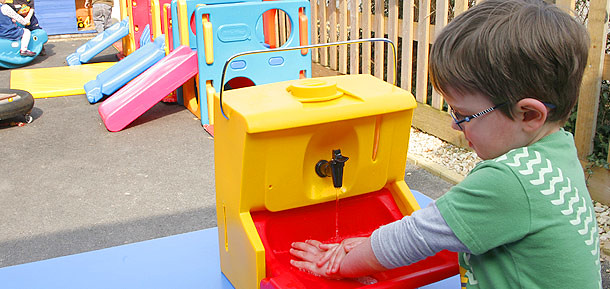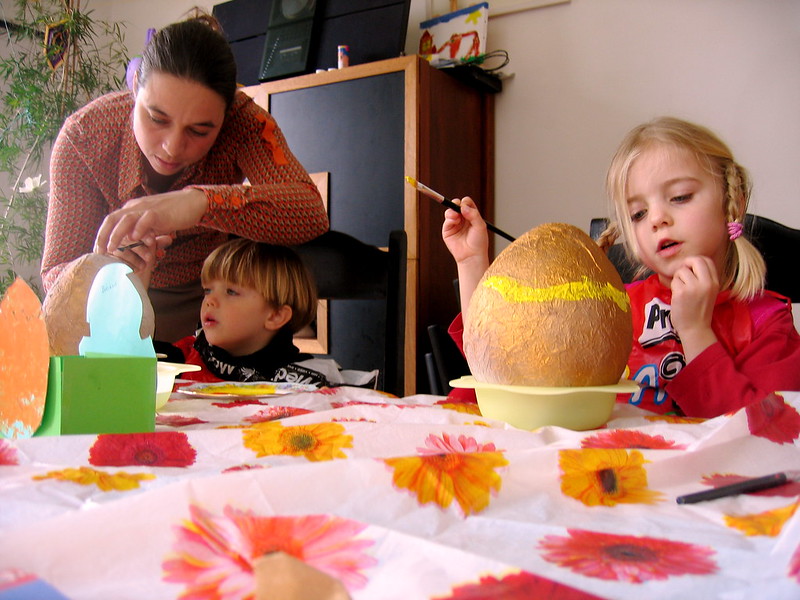SHARES

“At first, I was worried that my kids may get COVID-19 infection at school and even at nursery. When the schools close during the virus outbreak, I was relieved. But, not for long. Now, I’m more than worried about my kids’ schooling given that the pandemic isn’t going to go away any sooner. Lately, my son has been missing his friends at school.”
Generally, current evidence show that the COVID-19 affects children and infants the least. Having said so, it is important not to neglect the needs of our growing children at a critical time like this. Also, take this opportunity to demonstrate and teach our children about personal hygiene. This not only protects them from COVID-19 and future infections, but also promotes their health and well-being.
How Does COVID-19 Affect Children?
Even though current reports demonstrates low infection rate among children and infants, it is not confirmatory yet that children are at lower risk for severe illness from COVID-19. In addition, children and infants with COVID-19 infection commonly have milder symptoms. Usually, symptoms of infection include fever, cough, and runny nose. Less common symptoms entail diarrhoea and vomiting.
Most children recover well from the infection. However, the impact on children with other underlying medical condition or special healthcare needs is still unclear.
Tips For Keeping Children Healthy During COVID-19
1. Personal Hygiene Education
Children learn best through role-modeling. Teach and demonstrate to your children how to take care of personal hygiene. For example, wash hands properly with soap and water before and after meal, using toilet and before touching nose, mouth and eyes. Likewise, bath and change clothes after outdoor activities. This prevents outside germs from contaminating household furniture eg. sofa, door knob, bed etc.
On top of that, teach your children proper etiquette for coughing and sneezing. Cover the nose and mouth entirely with a handkerchief/ tissue/ face mask while coughing and sneezing. Dispose of the tissue properly and make sure to wash hands.
2. Launder and Disinfect Home Furnishings
Wash frequently all clothing, linen, carpets, and especially plush toys. Your children would likely have close contact with their plush toys. You may want to encourage your children to wash their plush toys themselves and learn to keep them clean.
Besides, disinfect often highly-touched surfaces such as eating table, chairs, basin, switches, door and doorknobs, and even your children toys, tablet, and remote controller. You can share these house chores with your children and encourage them to take good care of their own belongings.
3. Help Your Children Stay Active
Get your children take breaks from time to time. This can be small stretching break, a dance, or even a family activity such as games, chores, outdoor play etc. As such, your children get a more balanced physical and mental stimulation. You will find your children becoming more focused and fresh with a light mood.
In this sense, watch out for signs of stress in your children. These include excessive negative emotions, irritability, disturbed sleeping and eating habits, as well as poor concentration and attention. Spend more time and pay attention to how they are feeling. Demonstrate and encourage them to manage their stress. In this regard, sharing an active lifestyle with your children is a good way to manage stress.
4. Help Your Children Stay Connected With Friends
With schools closing down and social distancing, your children are having a lot less social contact. Explore creative ways with your children to find out what best suits them. For instance, they may want to learn how to contact their friends and cousins through internet or phone, mail some written cards/ painting / letters/ handcrafts, and even join some virtual classroom with friends.
5. Self-learning At Home
Create space and time for your children to learn. Find ways to make the learning room engaging and fun. More importantly, pay attention to their learning style and interests. For example, your children may prefer guidance from you, group study, self-learning, hands-on, interactive learning, and even spontaneous play. Encourage them to spend time working on their passion or interest and give them a little support when they fail.
Conclusion
In general, COVID-19 has low infection rate with good outcomes among children and infants. Yet, they can have less or no symptoms but can spread the disease readily. At a critical time like this, keep your children healthy and make sure to cater for their growing needs too. Take good care of your children physical, mental and emotional health.
Find a GP/Family Doctor in Malaysia, on GetDoc
Find a GP/Family Doctor in Singapore, on GetDoc
References:
1. Coronavirus disease 2019 (COVID-19) [Internet]. U.S. Department of Health & Human Services. 2020. (Available from: https://www.cdc.gov/coronavirus/2019-ncov/daily-life-coping/children.html; last updated on 2020 April 13; last accessed on 2020 April 19)
2. Michelle Fernandes. Why children are not immune to Covid-19 [Internet]? BBC. 2020. (Available from: https://www.bbc.com/future/article/20200330-coronavirus-are-children-immune-to-covid-19; last updated on 2020 April 1; last accessed on 2020 April 19)
by Chang Xian
View all articles by Chang Xian.







